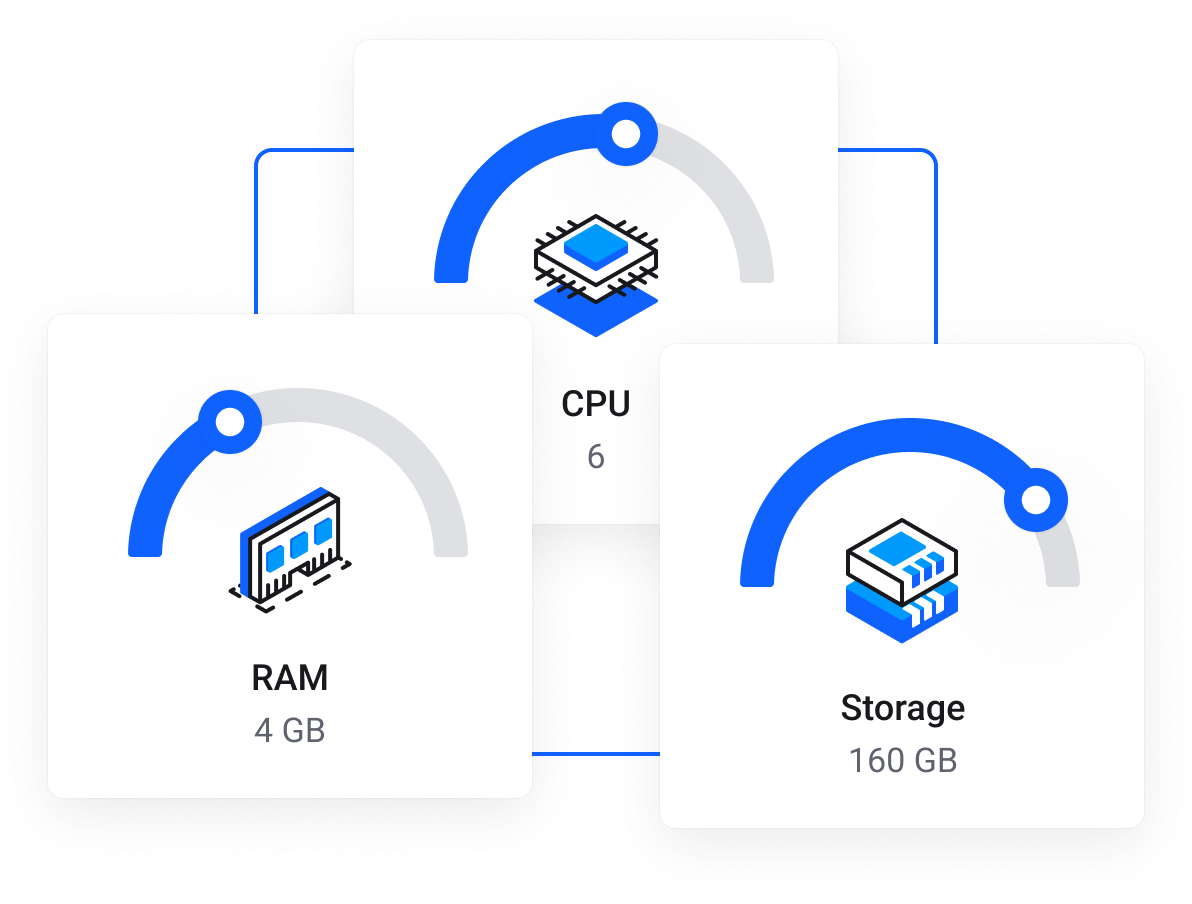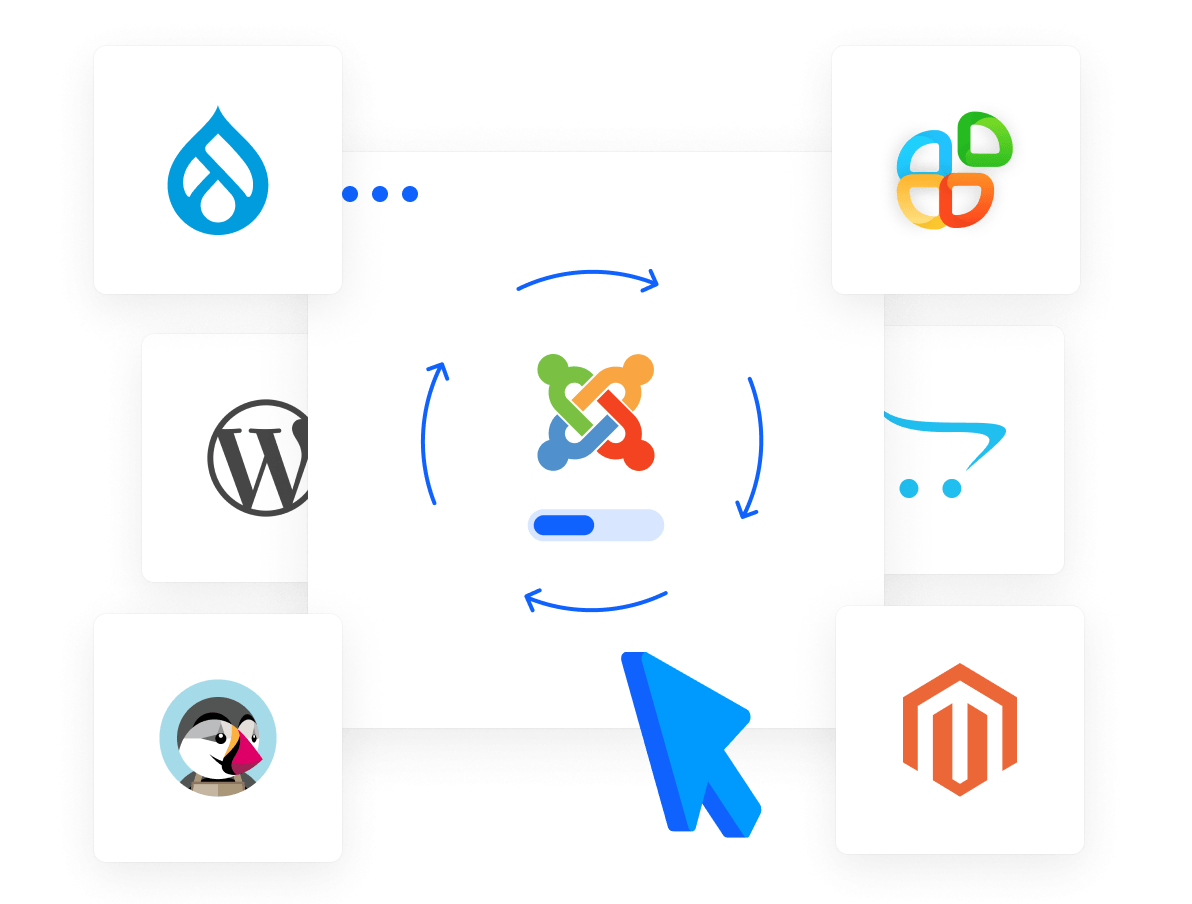The number one reason to choose virtual server hosting is for the powerful dedicated resources at the more affordable VPS server price. Every VPS web hosting account comes with dedicated resources such as RAM, CPU, and storage.
It takes a single click to launch WordPress, Joomla, Drupal, Opencart, Magento, Prestashop, or any other favorite content management system (CMS) from a library of 400+ website creation tools. Management perks include automatic updates, cloning, staging, and backups in a highly optimized environment.
Web hosting is a service that lets you rent web space on the internet to publish a web site. Email services are usually also included in most web hosting packages. Same goes for the domain registration of your first site name. The domain name is the address people enter in their browsers to access a specific website.
Shared hosting is the most widely used and affordable type of hosting service. In shared hosting, many websites share the space of one physical server and its resources. Cloud hosting is much more powerful as you get a whole server all by yourself and you don't share its resources with anyone.
Cloud hosting is the ability to make applications and websites available on the internet using the cloud. Cloud hosting pools computing resources from a network of virtual and physical servers, allowing for greater scalability and flexibility to quickly make changes. In most cases cloud hosting is also pay-as-you-go which means the teams pay for what they use and don’t have to worry about overprovisioning or underprovisioning resources.
Yes, for the most part, shared hosting is secure. Our servers have security solutions in place at the server level. However, in most cases, security problems like malware across a shared server only occurs because one or more hosting customers weren’t diligent in keeping their website’s software up-to-date
Choosing a domain name is an important step that can affect the success of your website. Here are some tips to help you choose a suitable domain name:
1. **Simplicity and memory**: Choose a name that is easy to remember and easy to type. Avoid special characters, dashes and numbers that make it difficult to remember.
2. **Using keywords**: If possible, include keywords related to your field in the domain name. This can help with SEO and recognition of your site.
3. **Preventing spelling mistakes**: Choose a name that looks clear and easy to write correctly. Names that can be noticed misspellings can lead users to other sites.
4. **Uniqueness**: Make sure the name is not too similar to the names of other sites to avoid confusion and help create a clear and distinct identity.
5. **Correct domain ending**: Use domain endings that are intended for your purposes, such as .com, .net, or .co.il if you operate in Israel.
6. **Avoid Copyright Violations**: Make sure the name does not violate copyrights or trademarks to avoid legal issues in the future.
7. **Expandability**: If your plans will include expansion into additional areas, choose a name that allows flexibility for growth.
If you're still undecided, you can try domain name generators that can offer you more ideas based on the words you've chosen.



